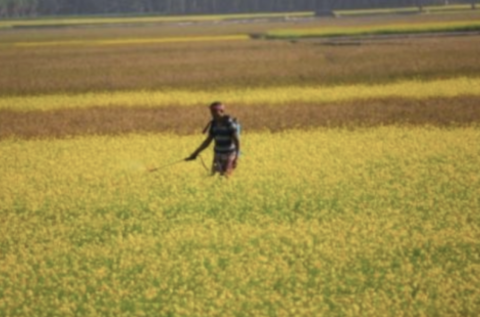Chlorpyrifos Country Situation Report – Costa Rica

See more on our Toxics-Free SDGs here.
Organophosphate insecticides have been on the agrochemical market for a long time. In Costa Rica there have been import records since the 1970s. Chlorpyrifos is an insecticide belonging to this chemical group and is currently one of the most widely used insecticide in Costa Rica and in the world. In recent years, more than 250,000 kilograms of chlorpyrifos as active ingredient are imported into Costa Rica annually.
This group of organophosphate pesticides inhibits the enzyme acetylcholinesterase, which prevents the normal transmission of the nerve impulse in organisms such as insects, birds, reptiles, fish, mammals and many other types of animals, thus causing acute poisoning, being the group of insecticides that cause the highest number of deaths globally. In the same way, in Costa Rica organophosphates are the group of pesticides that produces the greatest number of acute poisonings reported to official entities.
Chlorpyrifos has physicochemical characteristics that give it properties of persistence, bioaccumulation, ability to travel over long distances, and cause adverse effects on human health and the environment. It is considered a Highly Hazardous Pesticide (HPP) under the criteria of FAO/WHO and PAN. The health effects of chlorpyrifos include, in addition to cholinesterase inhibition and subsequent nervous overstimulation that can end in death, brain development disorders in children, even with prenatal exposures, delays in their cognitive functions, attention problems, greater probability of suffering from autism, permanent nervous effects, and other negative chronic conditions.
Human exposure to chlorpyrifos, and other pesticides, occurs through several routes: workers who handle, formulate, and sell the pesticide, farmers who apply it, and consumers of food that has been treated with the insecticide. Chlorpyrifos has been found contaminating entire populations that live near plantations where it is used in banana bags, contaminating fruits, vegetables, vegetables: in Costa Rica it is the fourth pesticide with the highest breaches of the Maximum Residue Limits in these foods.
This project relates to Sustainable Development Goals 2, 3, 6, 8, 12, 13, 14 and 15.
Special thanks to IPEN's Latin America & the Caribbean Regional Coordinator Fernando Bejarano, the Regional Hub RAPAM, and for the lead organization to this report, RAPAL Costa Rica, for their important contributions to the development and finalization of the project.
| Attachment | Size |
|---|---|
| 5.66 MB | |
| 72.95 KB |
